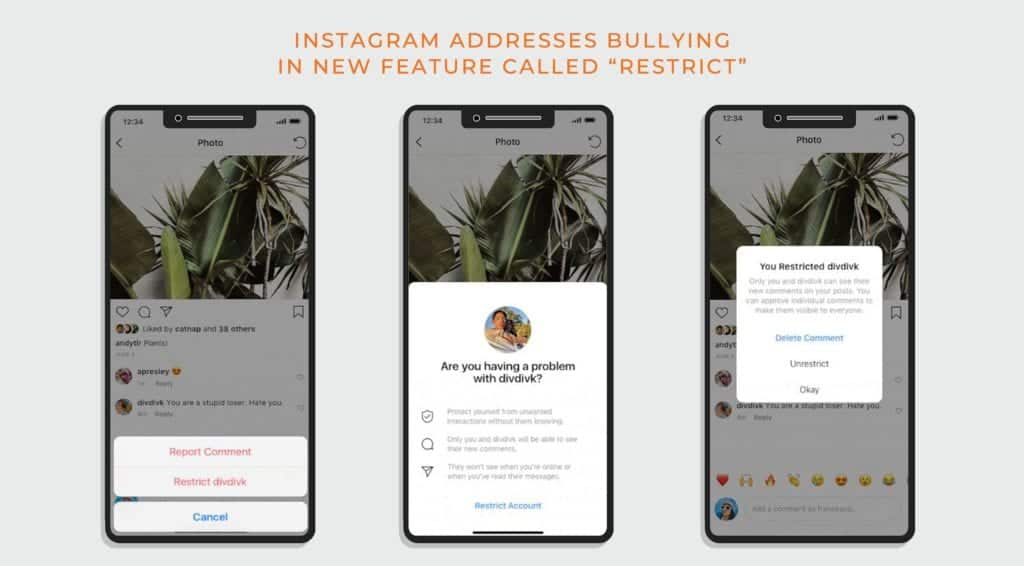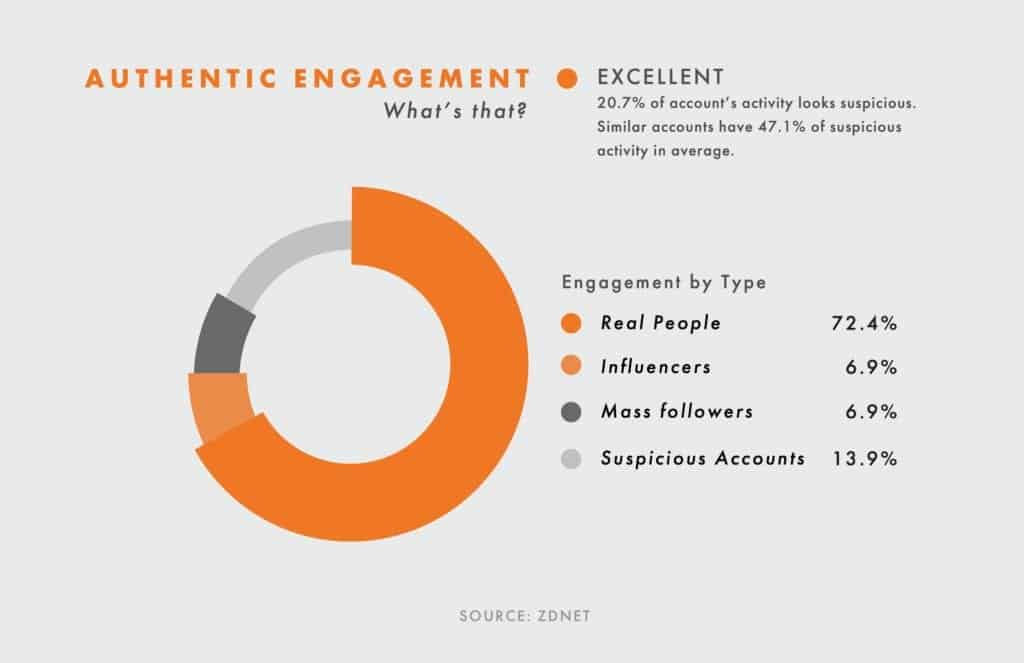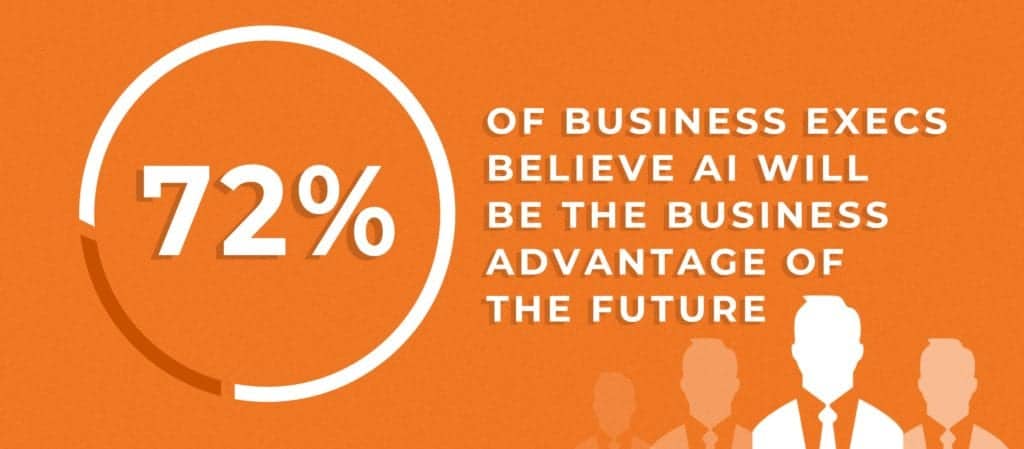
The benefits of AI technology seem limitless. Specific to Social Media, we’ve seen tremendous growth across the board and are continuing to witness breakthrough applications. Through machine learning, AI is able to “humanize” products and services, fine-tuning the delivery to be as relevant as possible for consumers. With all of the data that Social currently harnesses today, it’s becoming necessary to integrate this type of technology to ensure the maintenance of a safe and reliable digital environment.
Cracking Down on User Behavior
In 2017, Twitter teamed up with IBM Watson in an effort to fend off hateful messaging on its platform, utilizing Watson’s AI technology to track and remove abusive posts. Scanning millions of tweets per second, Watson technology interprets the natural language, intonation, and image analysis associated with each post before configuring whether or not it is deemed hateful. From here, Twitter can block the associated accounts responsible for the behavior. Instagram, another powerful social media tool, is also addressing the complex world of cyberbullying. The platform is rolling out new features, including one powered by artificial intelligence that notifies people when their comment may be considered offensive before it’s even posted. Additionally, the new “Restrict” feature helps users quietly block bullies and provide assistance if they are too reluctant to unfollow or report because of the real life consequences.

Facebook AI has taken similar initiative, cracking down on abuse on its own platform using artificial intelligence technology. According to Jennifer Dulski, head of groups at Facebook, “[there are] a number of AI tools that we already use around areas like terrorism where we remove 99% of all content related to Al Qaeda and Isis before it ever hits our site.” From here, Facebook is looking to expand this technology to look into other areas, including child safety. For example, in November 2017, Facebook announced its new measures to detect behavior that could indicate a user’s thoughts of suicide. Within November alone, Facebook’s updated algorithms made over 100 calls to first responders, alerting them to conduct wellness checks on each user who’s post elicited concern. Facebook has expressed further plans to expand this initiative worldwide.
Influencer Authenticity
On the influencer front, startups such as HypeFactory have created AI-powered tools to help marketers validate influencer Instagram accounts with respect to the authenticity of followers and likes. Using an audience quality score calculated by AI technology, HypeFactory offers marketers the ability to identify fake followers, allowing them to isolate those who will fail to contribute revenue to the brand.

Within the same sphere of influencers, companies like Influential have harnessed the power of Watson AI technology to scan and identify the best influencer matches per brand based on relevance. The companies who have benefited from Influential’s offerings include Hyundai Motor America, who, led by CMO Dean Evans, are able to define increasingly more accurate audiences and identify authentic influencers embodying these key demographics. Compared to the stereotypical surfers that had previously been depicted in Hyundai ad campaigns, Evans was able to reveal a new, unexpected audience. According to Evans, “what we found when we dug deeper were urban dwellers who like to do everyday activities, whether it’s going to a flea market today or an art sale the next day, versus going camping in the Rocky Mountain” (Forbes).
Surveying the Crowd
In 2017, Crowdtap CEO Matt Britton unveiled Suzy, a consumer intelligence startup that uses AI technology to pull data from Crowdtap’s network of one million creators. Suzy lets brands run surveys to acquire actionable insights, which they may then use to make data-informed decisions with respect to ad targeting. Marketers can log into the Suzy tool and ask a specific portion of the Crowdtap’s audience a question, which will then develop into an actionable insight for the brand. McDonalds, TD Bank, and Netflix are among the 70+ companies who are currently utilizing Suzy’s technology. Compared to other platforms, Britton points out that Suzy pulls first-party data and also produces valuable deliverables at a quicker rate than most brand studies and survey sites like SurveyMonkey. Moving forward, Britton launched a consumer-facing version in May 2018 to boost user base and to eventually expand to a B2B version of virtual assistants like Apple’s Siri and Amazon’s Alexa.
Regardless of the objective, it’s crystal clear just how powerful the advantages AI in marketing are. In addition to new developments such as the ones discussed above, the impact of AI technology on business is anticipated to increase work productivity by up to 40%, enabling increased time efficiency across various verticals according to an Accenture study (CMO).

At BCM, we’re always trying to stay ahead of the curve when it comes to understanding our key audiences and the ever-changing qualities which characterize them. For our brands, knowing who our targets are is the very first and highly crucial step in our process of executing a successful campaign. Having access to such AI-activated tools like Suzy is becoming a necessity for marketers like ourselves.
BCM’s Approach
Currently, BCM is taking advantage of a variety of tools with artificial intelligence capabilities, including Marin Social and Smartly, and we’re hoping to incorporate more in the near future.Marin is utilized for our paid campaigns, with which we’re able to employ machine learning to increase ad efficiency through a variety of features including multivariate and A/B testing and auto-optimization of creative assets. With Smartly, we’re in the process of taking advantage of its weather-triggering capabilities for some of our seasonal brands. But, we’re not stopping there, and if you’re a marketer neither should you. With so many applications, it’s becoming crucial for marketers to keep questioning, what can AI in social media do for you?
Looking to learn more about how AI can help you improve or expand your advertising efforts? Contact BCM today.
Also, be sure to watch this video to find out what BCM Principal Stuart Meyler has to say about the future of AI on digital marketing.

1 min read
How Facebook Could Change the World of Advertising
Facebook has come a long way since it’s first ad placements: banner ads called Facebook Flyers that allowed advertisers to target college students...


